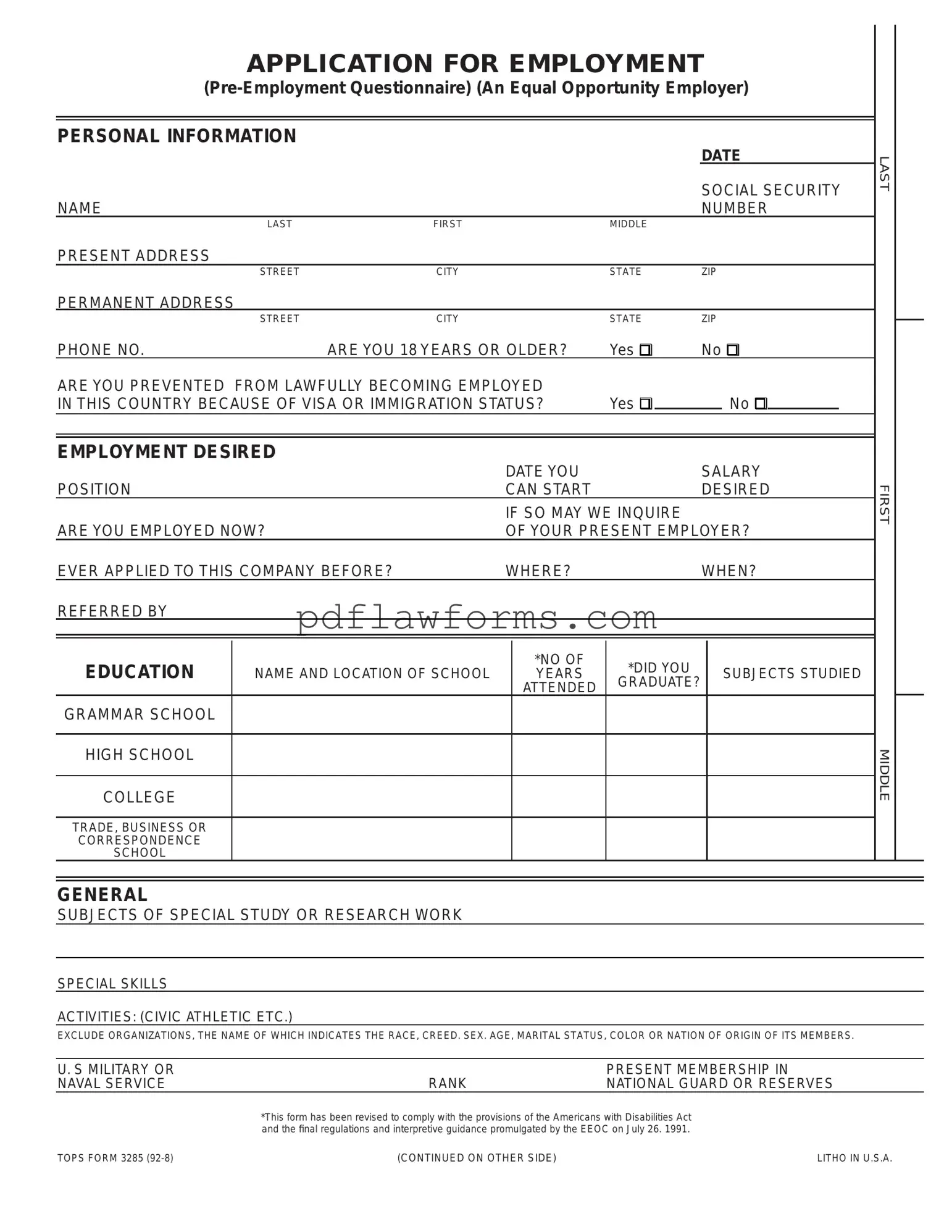Filling out an employment application can be a daunting task, and many applicants inadvertently make mistakes that could hinder their chances of securing a position. One common error is incomplete information. When individuals skip sections or fail to provide necessary details, it raises questions about their attention to detail and commitment. Employers often seek thoroughness, and an incomplete application can signal a lack of seriousness about the job.
Another frequent mistake is typos and grammatical errors. These small oversights can leave a negative impression. A well-written application reflects professionalism, while a document riddled with mistakes may suggest carelessness. Taking the time to proofread can make a significant difference in how an applicant is perceived.
Applicants sometimes neglect to tailor their application to the specific job. Using a generic application that does not highlight relevant skills and experiences can diminish an applicant's appeal. Employers appreciate when candidates take the time to align their qualifications with the job description, demonstrating genuine interest and effort.
Additionally, individuals may fail to follow the instructions provided with the application. Each employer may have specific guidelines regarding how to fill out the form, including formatting and submission methods. Ignoring these instructions can lead to disqualification or delays in processing the application.
Another common pitfall is providing inaccurate information. Whether it's a misrepresentation of job titles, dates of employment, or educational credentials, inaccuracies can have serious consequences. Employers often conduct background checks, and discrepancies can lead to loss of trust or even withdrawal of a job offer.
Some applicants also make the mistake of not including references or failing to inform their references in advance. A strong application often includes a list of references who can vouch for the applicant’s skills and character. Not preparing references can leave employers without the additional context they seek to make informed decisions.
Another oversight involves neglecting to highlight soft skills. While technical qualifications are important, employers increasingly value interpersonal skills such as communication, teamwork, and adaptability. Failing to showcase these attributes can result in an incomplete picture of what the applicant can bring to the organization.
Lastly, many applicants overlook the importance of timeliness. Submitting an application late can often mean missing out on opportunities. Employers typically have deadlines for applications, and adhering to these timelines is crucial for demonstrating reliability and enthusiasm for the position.

